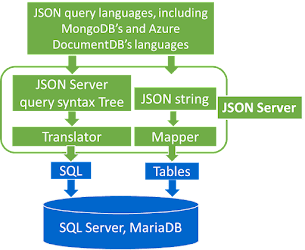Post15: JSON Server - the best practice for front-end developer
JSON Server is a tool that allows you to quickly set up a RESTful API server with CRUD (Create, Read, Update, Delete) operations using a JSON file as a data source. It's often used for prototyping, front-end development, and testing, providing a simple way to create a mock server without the need for a database.
JSON Server supports common HTTP methods such as GET, POST, PUT, and DELETE, enabling developers to perform CRUD operations on data to build interactive applications. By defining data inside a JSON file, developers can quickly create functional API prototypes and simulate different scenarios during testing. The default key used to identify objects in JSON Server is id, but it also supports the use of a custom identifier key. To set up JSON Server, developers need to have Node.js and npm installed on their system, define data inside a JSON file, and start the server using a simple command. JSON Server is widely used for front-end development and is a valuable tool for creating and testing RESTful services.
Here are some key features and use cases of JSON Server:
Mock API Development: JSON Server enables developers to quickly create a mock API server by defining routes and responses in a JSON file. This allows front-end developers to work on client-side code without waiting for backend development to be completed.
Rapid Prototyping: It's useful for rapidly prototyping and experimenting with API designs. Developers can easily create and modify endpoints, test different data structures, and simulate various scenarios.
CRUD Operations: JSON Server supports CRUD operations (Create, Read, Update, Delete) out of the box. You can perform these operations on the JSON data using standard HTTP methods (GET, POST, PUT, DELETE).
Custom Routes: In addition to standard RESTful routes generated based on the JSON file structure, JSON Server allows you to define custom routes and behaviors using JavaScript.
Middleware Support: JSON Server supports middleware functions, allowing you to customize the behavior of routes, implement authentication, logging, validation, and more.
Static File Hosting: JSON Server can also serve static files, making it convenient for hosting front-end applications along with the mock API.
For more: Official site




.png)


0 Comments